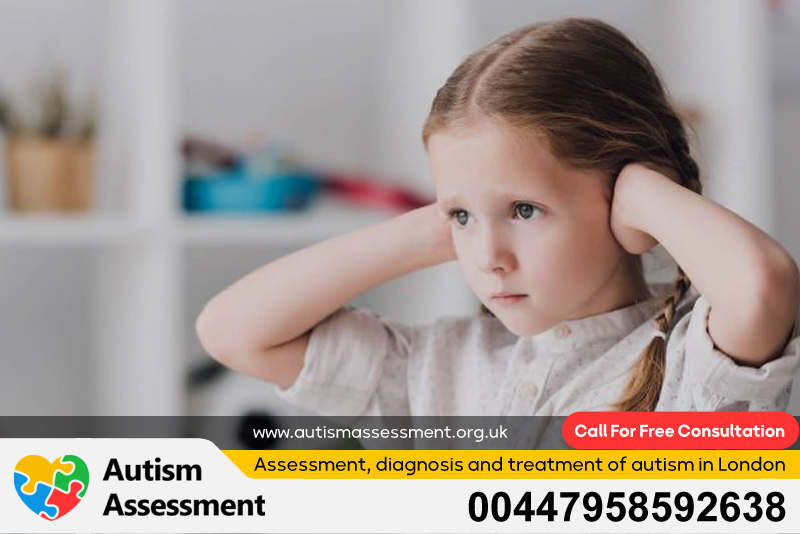Autism Spectrum Disorder (ASD) and trauma can significantly affect individuals’ lives, shaping their behaviors, emotions, and interactions. While they are distinct experiences, the impact of trauma can sometimes mimic or mask the symptoms of autism, leading to confusion and misdiagnosis. Understanding the differences and intersections between autism and trauma is crucial for providing effective support and intervention for those who face these challenges. This article explores the characteristics of autism and trauma, the complications that arise when distinguishing between the two, and the importance of tailored approaches to treatment and support.
Autism is a neurodevelopmental disorder that affects how an individual perceives and interacts with the world. It typically manifests in early childhood and is characterized by difficulties in social communication, the presence of restricted interests, and repetitive behaviors. Individuals with autism may struggle to engage in typical social interactions, often finding it challenging to interpret social cues, share interests, or establish friendships. Their behavioral patterns might include intense focus on specific subjects and a preference for routines and predictability. This preference can sometimes lead to heightened anxiety when faced with unexpected changes or sensory overload. As a result, societal misunderstandings and stigmas surrounding autism can exacerbate feelings of isolation and frustration for individuals on the spectrum.
On the other hand, trauma refers to the psychological and emotional response to distressing life events, such as abuse, neglect, loss, or severe accidents. Traumatic experiences can lead to symptoms commonly associated with post-traumatic stress disorder (PTSD), including flashbacks, heightened anxiety, mood swings, and difficulties with trust and relationships. Individuals who have experienced trauma may also develop coping strategies that can manifest as avoidance behaviors, emotional numbing, or hyper-vigilance. The effects of trauma can impact individuals across their lifespan, shaping their responses to both people and situations, and significantly influencing their mental health and overall well-being.
A significant challenge arises when attempting to differentiate between the symptoms of autism and those resulting from trauma. Some children with autism may exhibit behaviors that resemble trauma responses, such as heightened anxiety, avoidance in social situations, or difficulty processing emotions. For instance, a child on the spectrum may react with fear or aggression when faced with unexpected changes, which could be mistaken for a trauma response. Conversely, a child with a trauma history may demonstrate social withdrawal, emotional dysregulation, or hypersensitivity that can mirror certain traits of autism. This overlapping symptomatology complicates the diagnostic process, highlighting the need for comprehensive evaluations conducted by experienced professionals who can consider the full context of a child’s experiences.
The treatment approaches for autism and trauma also differ significantly. Autism interventions typically focus on enhancing communication and social skills, minimizing repetitive behaviors, and supporting the development of independence and self-regulation. Applied Behavior Analysis (ABA) and Social Skills Training are commonly utilized to teach individuals with autism key skills that can improve their interactions and ability to navigate social situations. Additionally, therapies that incorporate sensory integration techniques may help individuals manage sensory sensitivities often associated with autism.
In contrast, trauma-informed care emphasizes understanding the impact of trauma on an individual’s behavior and emotions. Therapeutic interventions, such as Trauma-Focused Cognitive Behavioral Therapy (TF-CBT), aim to help individuals process trauma, develop coping strategies, and regain a sense of safety and trust. These approaches prioritize creating a safe and supportive environment where individuals can express their feelings and experiences without judgment. For individuals who have experienced trauma and may also be on the autism spectrum, integrating strategies from both perspectives can provide a comprehensive approach that addresses their unique needs.
Creating a support network for individuals experiencing either autism or trauma challenges necessitates collaboration among families, educators, and mental health professionals. Educators and caregivers play vital roles in recognizing the signs of both conditions and facilitating appropriate interventions. Training programs that educate caregivers and educators about the intersection of autism and trauma can enhance their understanding and enable them to respond more effectively to behaviors connected to either condition. Promoting inclusive environments that foster understanding and empathy is crucial, as these spaces allow individuals to feel safe, supported, and better equipped to express their feelings.
In conclusion, while Autism Spectrum Disorder and trauma are distinct experiences, their overlapping symptoms can create challenges in diagnosis and treatment. Recognizing the complexities of each condition is essential for effective support and intervention. By understanding the nuances between autism and trauma, caregivers and mental health professionals can develop tailored strategies that enhance well-being and facilitate healthy development. A compassionate and informed approach can empower individuals facing these challenges, ultimately promoting resilience and improving their quality of life. As awareness of both autism and trauma continues to grow, fostering understanding and empathy remains vital for creating supportive communities that cater to the diverse needs of individuals navigating these experiences.



